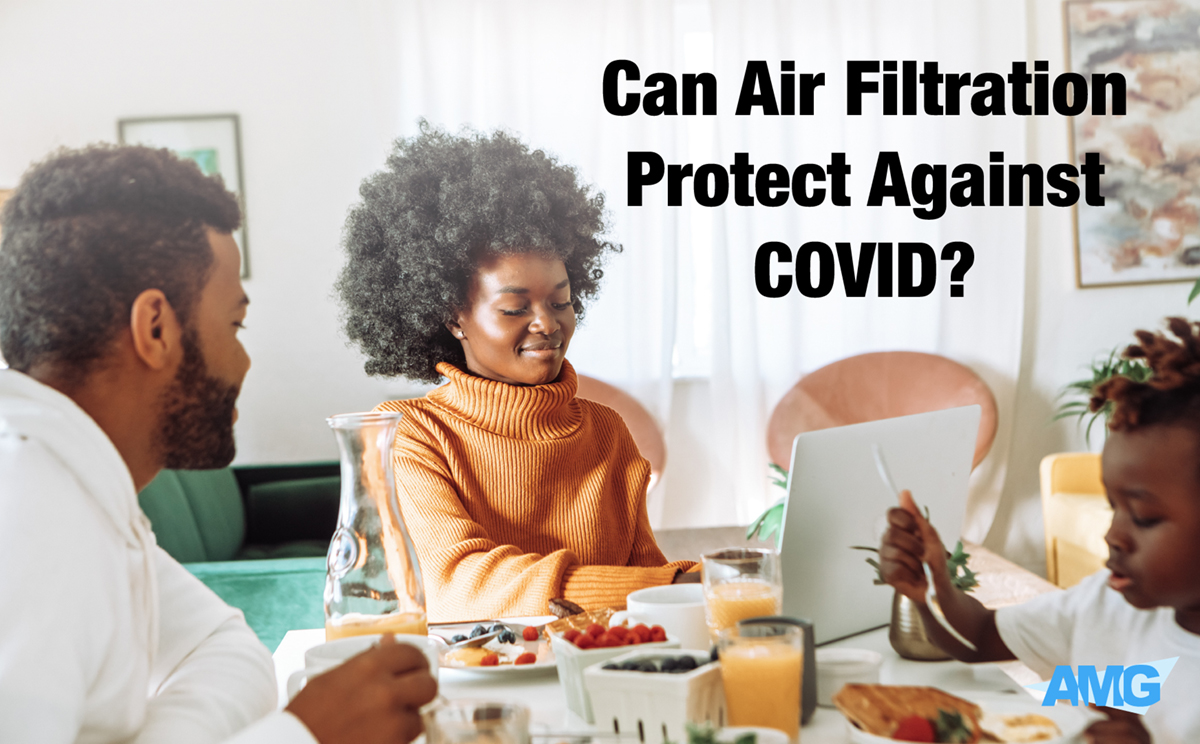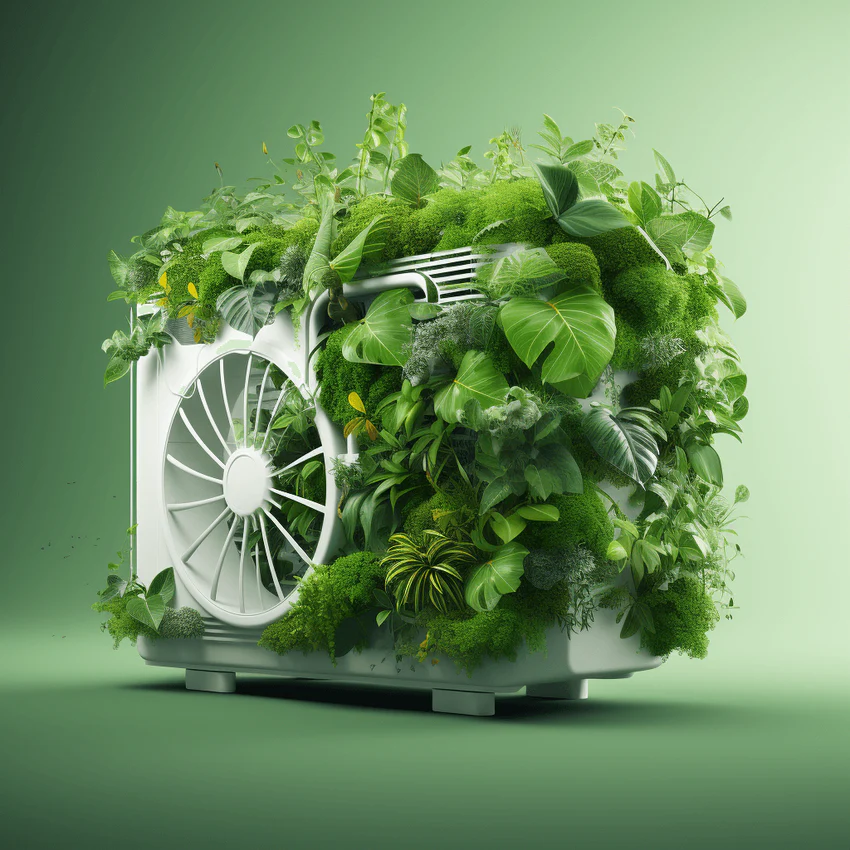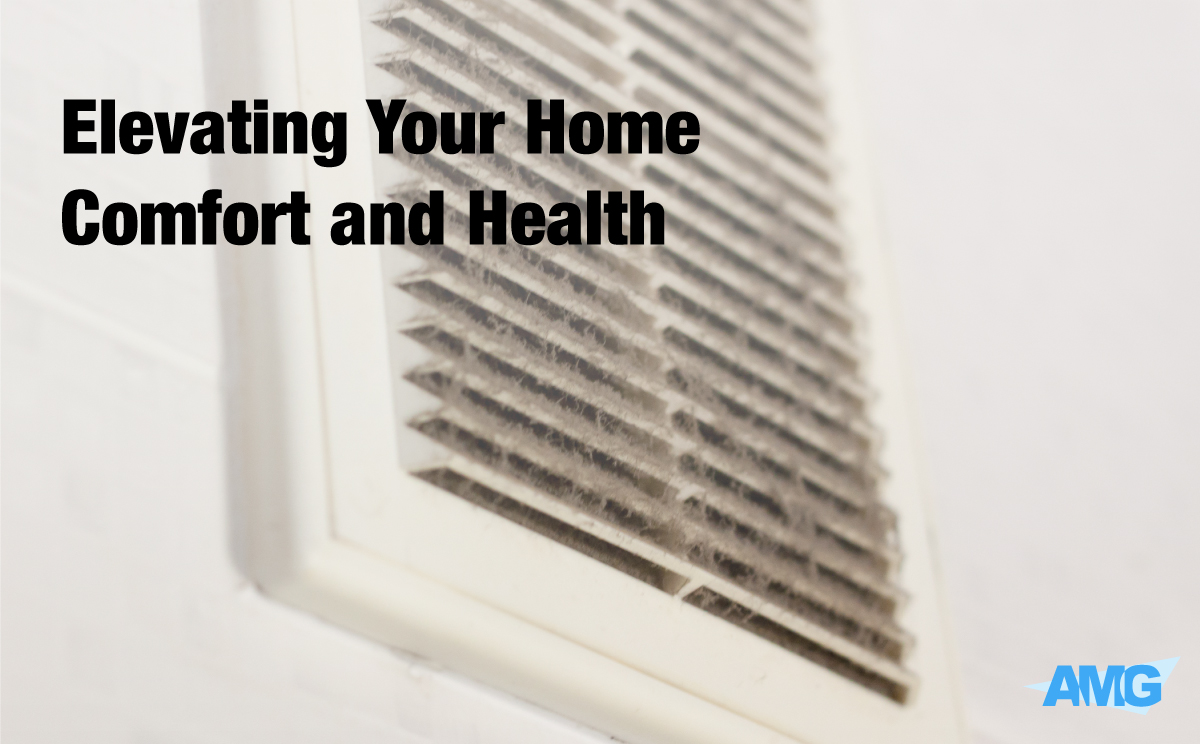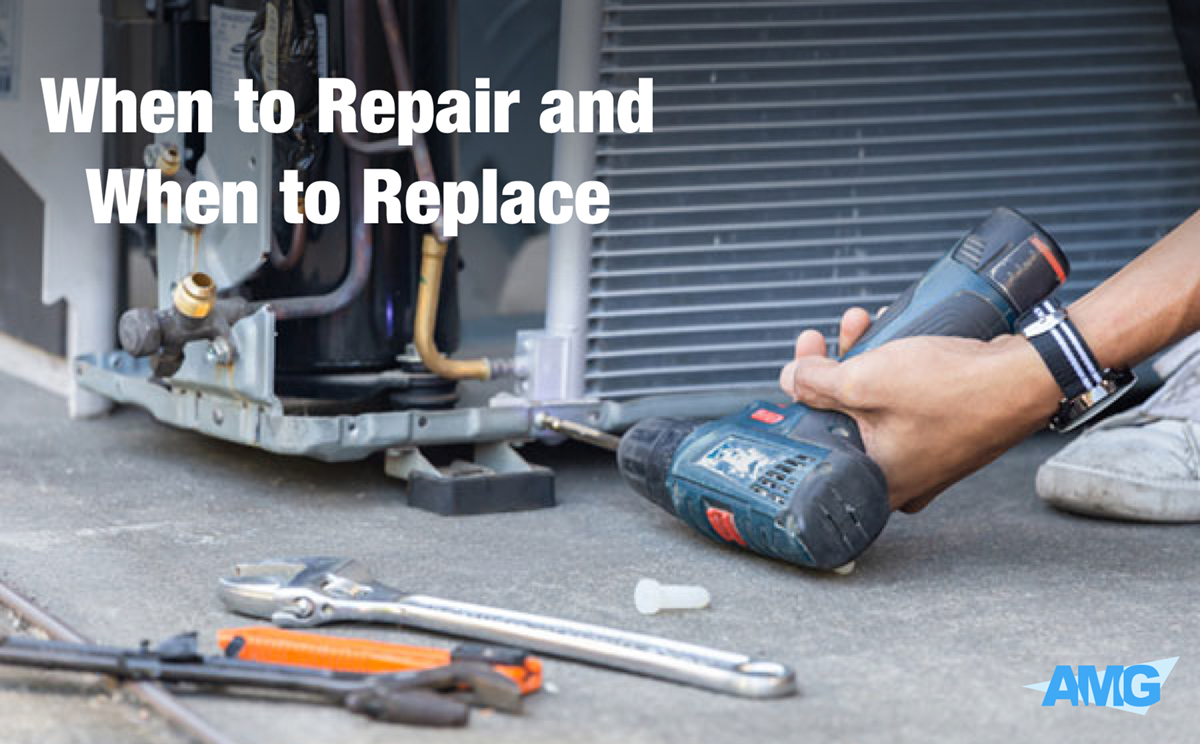Having clean, breathable air in your home has always been important. Dust, mold, and other contaminants can exacerbate allergies and asthma, and can even make you sick. However, now an even bigger threat has arisen the last two years: the coronavirus. The airborne virus spreads quickly and can do a lot of harm. Can proper air filtration help protect you against COVID? Here’s what you need to know.
Air Cleaners and HEPA Filters
The effectiveness of air filters is measured by their MERV ratings – Minimum Efficiency Reporting Value. MERV ratings are a scale that tell you how well a particular filter works at removing contaminants from the air.
Most residential HVAC systems take filters rated between 8 and 12, which can get rid of pet dander, mold spores, and other common household contaminants. However, in order to filter out viruses, you need something rated higher than that: a High Efficiency Particulate Air filter. HEPA filters can eliminate 99.97% of contaminants, down to 0.3 microns. They’re the most effective option for keeping harmful contaminants out of your air.
The problem is, HEPA filters are too thick to go into your HVAC system. They restrict airflow, which not only wastes energy, it can damage your system. In order to use a high efficiency filter, you need a dedicated air cleaner or air purifier that’s designed for them.
HEPA and COVID
So, can an air cleaner with a HEPA filter protect you against COVID? According to the EPA, it can definitely help. However, it’s not enough on its own to ensure your safety. Masks and social distancing are still recommended, when interacting with people who are not part of your household, particularly if they’re not vaccinated, or if you’re not sure of their vaccination status. Vaccination is the most effective method of protecting yourself and your loved ones against COVID.
It’s also important to change your air filter regularly. If the filter gets clogged, it’s no longer efficient at removing contaminants, and can even start blowing them into your home. Clogged filters can also impede airflow through your system.
A regular HVAC filter will last three to six months. A HEPA filter can last two to three years. Check them both periodically to see if they need to be replaced. You can tell a filter is clogged, as the white, translucent material turns grey and opaque with the dust that it’s collected.
Finally, it’s essential to maintain good ventilation in your home. Ceiling fans can help in this regard, as well as simply opening your windows. The air outside is much cleaner than the air in your home, so opening a window to let in clean, fresh air is a great way to improve your IAQ and reduce the risk of COVID.
Good air filtration is essential to your home, and the health of you and your family—not just during a pandemic, but all the time. Contact us to see how you can improve your IAQ and protect yourself against COVID and other health issues throughout the year.



